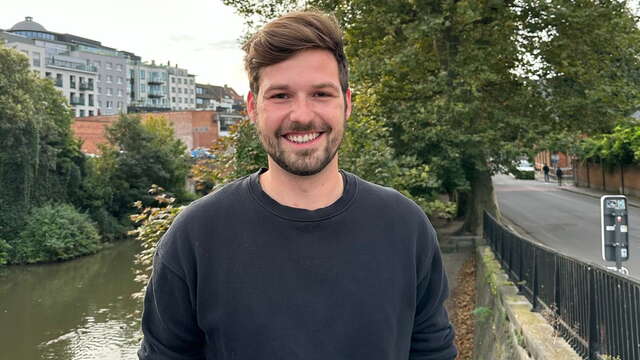St.Gallen is known for its economics. OST also stands for technology - and an interesting combination of both. The industrial engineering course at OST in St.Gallen teaches business and technical know-how and trains specialists who specialize in the big picture.
Industrial engineers solve problems
They are problem solvers, analyze processes in their entirety and have excellent communication skills: Industrial engineers work at interesting interfaces in companies. They have a great deal of technical knowledge, but are also familiar with business contexts. In contrast to other engineers, they usually work less directly on individual machines or systems, but deal with the questions of how which technology can be used profitably when and where. Such specialists are increasingly in demand in industry. The rapid progress in technology and topics such as artificial intelligence, collaborative robots and machines that communicate with each other worldwide are enabling completely new production methods and manufacturing processes. Experts are needed who can manage projects, initiate developments, contribute ideas, keep an eye on the final goal, stay in contact with a wide variety of teams and optimize processes. In short: specialists with an eye for the big picture.
Students develop for companies
At OST, such specialists are trained on the Industrial Engineering and Management course. The structure of the course guarantees that graduates have the skills they are looking for when they graduate. With their Bachelor's degree, they can therefore enter directly into important positions in companies. This is ensured, among other things, by a very high level of practical relevance in the course. Students put their newly acquired knowledge into practice from day one. The vehicle for this is the industry project. Small teams of students work directly with an industrial partner from the first semester onwards. Over the course of two years, they develop a new product or service for this partner. The groups go through all the steps from the initial idea to a functional prototype and a market launch. They analyze the company structure, products and the market and create a basis for decision-making and options for action for the management.
Errors welcome
In such practical projects, students are motivated to try out new things and to pursue ideas and concepts that may seem unexpected at first glance. After all, the aim is not to avoid making mistakes. Rather, the aim is to gain professional qualifications through new knowledge and experience. This is a win-win situation: the companies benefit from fresh, unconventional ideas, the students get to know the real environment in the industry with all its challenges and learn how to react appropriately. In addition, the students can make interesting contacts in the industry. It is not uncommon for a job to be found after graduation.
How do I become an industrial engineer?
Most WING students have completed a technical or commercial apprenticeship with a vocational baccalaureate. However, it is also possible to start after completing a baccalaureate and gaining one year of professional experience. Such an internship can be completed either before the start of studies or during training (PiBS - practice-integrated Bachelor's degree, from 2024). In addition to the OST in St.Gallen, industrial engineering can also be studied at the OST in Rapperswil.
Interview with Joel Benz, Industrial Engineering student at OST
Joel Benz is in his 5th semester of industrial engineering at the OST. The St.Gallen native is currently spending a semester abroad in Belgium. Find out in this interview how he started his career and what he particularly likes about studying industrial engineering.






